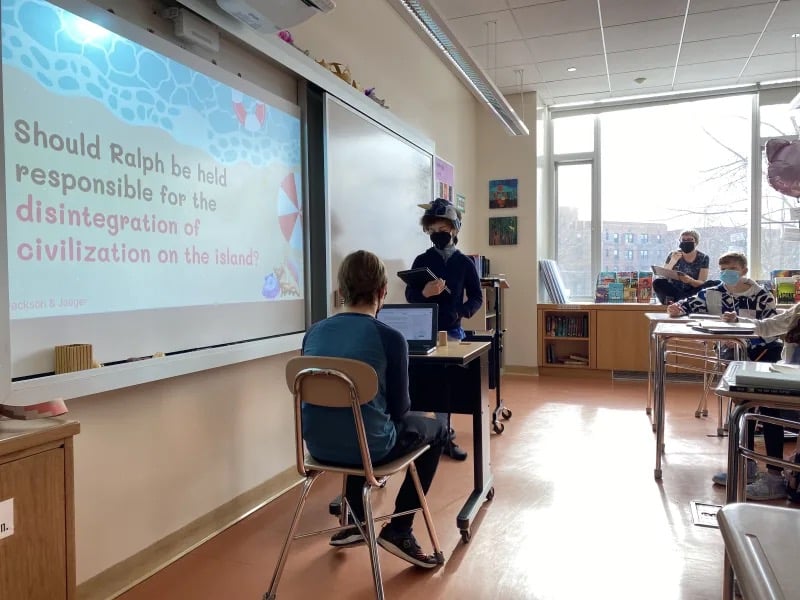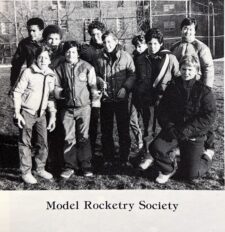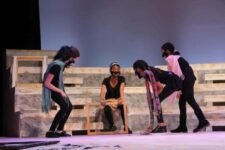Winter sunlight pours through the wide windows of the Fieldston Middle classroom. Two students sit at the front of the room, a wooden gavel resting on the desk between them. In the minds of this 7th Grade class, these are no longer their fellow students. Instead, they are watching “Jack” explain to an interrogator why he is not responsible for the disintegration of civilized society on the island in “Lord of the Flies” by William Golding.
Every 7th Grade student at Fieldston Middle takes part in the inquest project — arguing on behalf of either Jack or Ralph to try to prove who was to blame for the events in “Lord of the Flies.” Using evidence from the novel to argue their position, the students work in pairs and eventually present their arguments to their classmates. Within the pairs, one student acts as the interrogator, while the other acts as Jack or Ralph.

“What’s great about using a trial or courtroom project with a book is that it’s super high interest for the kids,” explains Laurie Hornik, Fieldston Middle English Department Chair and Teacher. When Hornik first introduced the project to her students, it functioned more like a mock trial, with defense and prosecution teams. While the students enjoyed the excitement of a courtroom drama, Hornik felt that the project was too competitive. Even though a winner wasn’t declared, the students still wanted to know who “won.” Hornik, alongside the Fieldston Middle English Department, chose to pivot from the mock trial format to the inquest format, where every student in the class argues on behalf of both Ralph and Jack.

Following the inquest performances, each student writes an argumentative essay in which they can choose to focus on either Ralph or Jack, and choose whether to argue for that character’s guilt or innocence. Hornik explains how the inquest project prepares students for writing their essays. Each student, she says, is essentially acting out the essay for their peers: The opening statement is the introduction, followed by their argument and evidence, ending with a closing statement, or conclusion. “Middle school is the first time students are writing more formal essays, and the chance to act one out before attempting to write is very helpful — almost kinesthetic,” says Hornik.
Along with preparing students to understand the structure of their essays, the inquest project also gives them the opportunity to really dig into the story, the characters, and the themes of the novel. “It gets them to do some deep critical thinking,” explains Hornik. “It gives them a really chewy question — a question that has a lot of layers to it.”
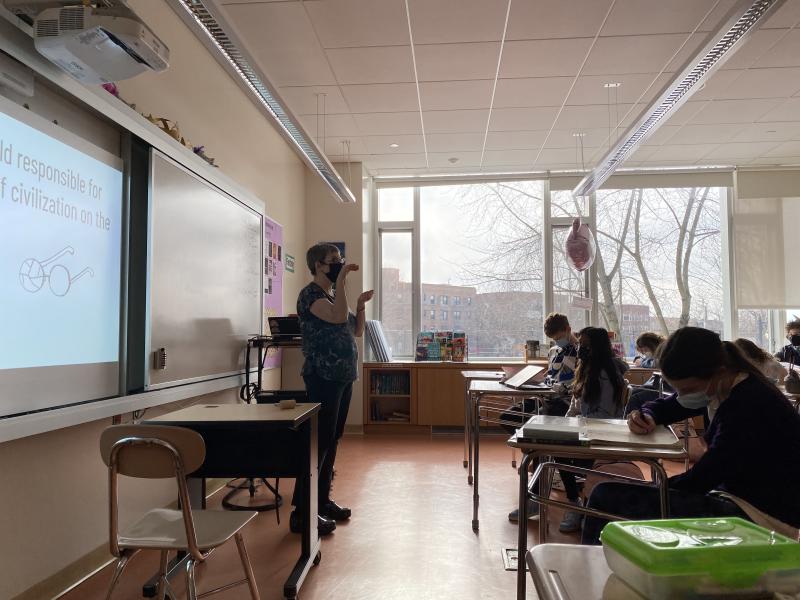
“Lord of the Flies,” though published nearly 70 years ago, still offers students an engaging and thought-provoking novel to explore. “Ralph and Jack both have different approaches to life on the island, and at first it seems like Ralph is the good guy and Jack is the bad guy. But as the kids push deeper into the book and understand the textual evidence, they start to see arguments they could make in the other direction,” explains Hornik. The inquest project teaches 7th Grade students about the power of holding multiple perspectives, both in literature and in life.
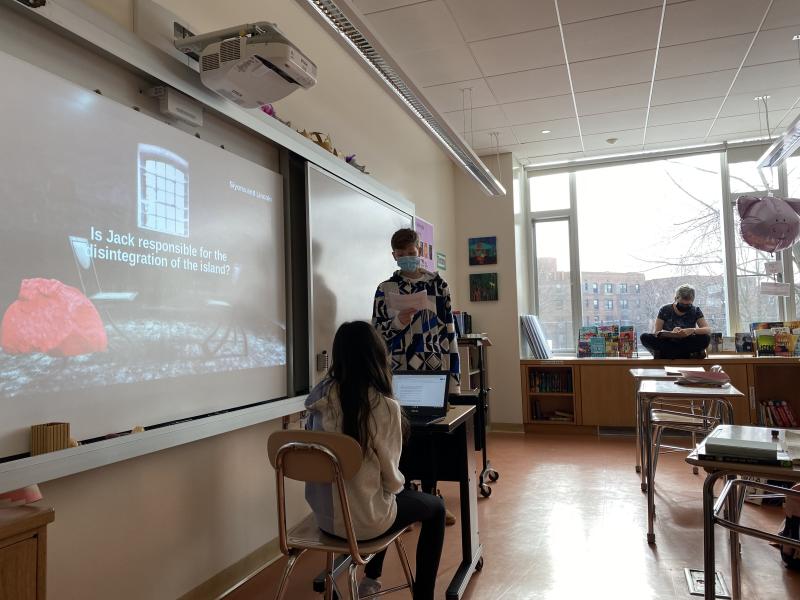
The themes found in “Lord of the Flies” continue to feel relevant for middle school students today. “The novel has so much to do with peer pressure, bullying, and the different power that kids have and what they do with that power,” explains Hornik. At the end of the day, the novel asks a simple question: What is your responsibility towards other people? Through the inquest project, 7th Graders at Fieldston Middle use multiple perspectives to find the answer.
